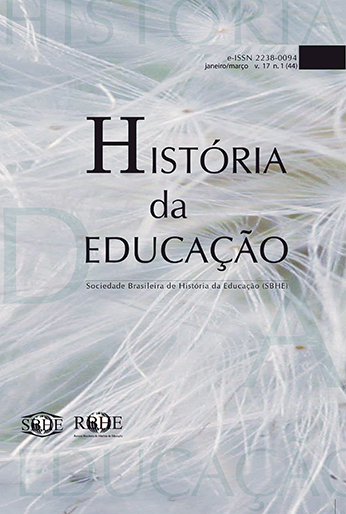Culture and work in discussions on Secondary Education and Industrial in the 1930s in Uruguay
Abstract
In this article we analyze, from a comparative perspective, the meanings given to ‘culture’ and ‘work’ in two events: the Congreso Universitario Americano and the Conferencia de Enseñanza Industrial, in the context of Uruguay’s independence centennial. Our hypothesis is that the proposals to reform secondary and industrial education, pushed through in 1934 and 1935, had been outlined four years earlier in those events. We consider the congress and the conference as privileged spaces to analyze, from a comparative approach, the discursive matrix which structured the different proposals. In order to locate the discourses’ context of enunciation we will analyze the authorities opening speeches, the attendees and the issues discussed. Those elements allow us to describe the context that gave meaning to the signifiers ‘culture’ and ‘work’, as well as to the institutional transformations proposed for secondary and industrial education in a matrix (re)foundation period.
Downloads
Os direitos autorais pertencem exclusivamente aos autores. Os direitos de licenciamento utilizados pelo periódico consistem na licença Creative Commons Attribution 4.0 (CC BY 4.0): são permitidos o acompartilhamento (cópia e distribuição do material em qualqer meio ou formato) e adaptação (remix, transformação e criação de material a partir do conteúdo assim licenciado) para quaisquer fins, inclusive comerciais.
Recomenda-se a leitura desse link para maiores informações sobre o tema: fornecimento de créditos e referências de forma correta, entre outros detalhes cruciais para uso adequado do material licenciado.













